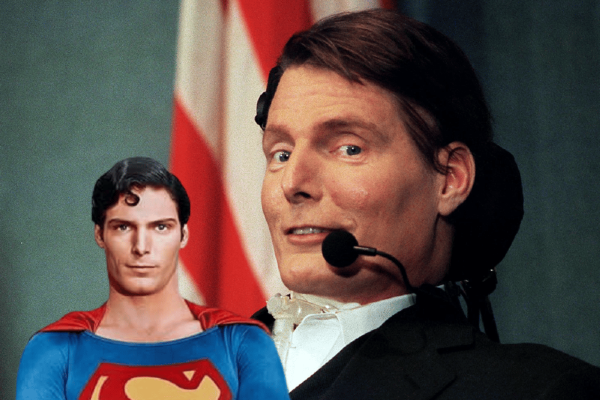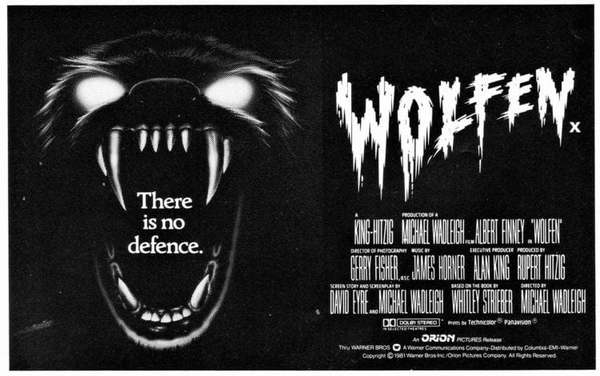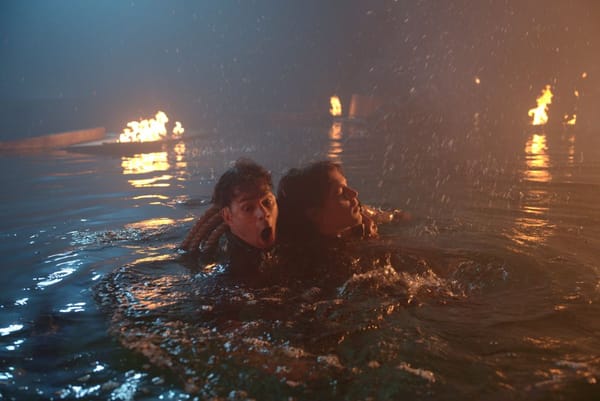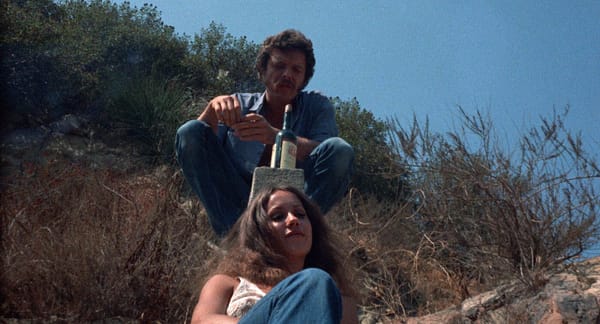Super/Man: The Christopher Reeve Story

Christopher Reeve was many things. A terrific actor, a conscientious fellow, and a fierce activist. He was, of course, also Superman. That was the role that defined him when he was alive, and continues to define him long after his death.
"Super/Man," as the title suggests, is a look at how that role characterized him to millions of people around the world, but also how he was as the man. Just a man. The 2024 documentary, directed by Ian Bonhôte and Peter Ettedgui, who covered similar ground in the 2020 film "Rising Phoenix" about the Paralympics, explores Reeve's life and career before and after his 1995 horse riding accident that left him paralysed, but it doesn't do it in a linear way. The film is broken up into a number of episodic sequences, which zip back and forth through time to contrast his life as the DC Comics superhero and his life as a different kind of superman.
What's interesting is the way it's presented, with a narration of sorts by Reeve that was taken from his audiobook recordings for his two autobiographies, "Still Me" and "Nothing Is Impossible," both of which were written after the accident. With three children from two long-term relationships, there are all sorts of videos that show how eager he was to dedicated he was to his family, and also footage of his family being dedicated to him post-paralysis. Through these, we get an intimate idea of what it was like to live with Superman, and how both he and those close to him coped when their lives were turned upside-down by the accident.
There are contemporary interviews with several people who were also there at the time; At the forefront is his ex-partner Gae, and his three children Matthew, Alexandra, and Will - the first two Reeve had with Gae, while Will came during his marriage to Dana, who sadly died in 2006. Reeve had many close friends in Hollywood, so there are appearances by Whoopi Goldberg, Glenn Close, Susan Sarandon, and Jeff Daniels, as well as Brooke Ellison, a quadriplegic activist Reeve was close with, and the doctor that treated him at his rehabilitation centre. Of course, there are also numerous archive interviews with Reeve, as well as with his best and also sadly departed friend Robin Williams.
It doesn't sugar coat things, either. As much as the story is about someone trying to overcome insurmountable odds, it's also about a person who was just a flawed man that happened to wear a cape at work. The idolisation of Reeve by so many people, and their insistence that he was Superman had both positive and negative effects. How do you live your life when the world holds you up to an ideal based on pure fantasy? Reeve was a big theater guy originally and went to Julliard with Daniels and William Hurt, but when he told them he got the role of Superman, the latter berated him for selling out.
Reeve was also apparently a big ladies guy, and one of the reasons Exton gives for their relationship failing was that he just wanted to be single, and that he believed marriage was a prison sentence. Interestingly, there's also no appearance by Jane Seymour, who said they had a relationship while working on "Somewhere in Time," although she stated he and Exton had broken up during that period. Matthew also said they had a strained relationship, especially when Reeve moved to New York after he and Gae split. Reeve himself had a father who was never happy with his son, and who would belittle him, even when he became the man of steel.
And then there's Superman himself. Reeve was magnetic in the role, and it's no wonder so many people - myself included - find it so hard to see anyone else as that character. But he also went through trying times as the pictures dropped in quality and production value. Reeve tried to make something unique and relevant for 1987's "Superman IV: The Quest For Peace," but it was hamstrung by poor writing and a reduced budget that saw notorious production company Cannon using Milton Keynes as the bustling city of Metropolis.
And this is the thing. Superman, for all intents and purposes, is invulnerable. But, like Reeve, he's a flawed character, because he's human. He was raised on Earth, even if he was born on another world. But to see Superman fail is tough. And then to see Superman paralysed in a wheelchair, well the symbolism is not lost, which is another thing the film touches on. How Reeve tried to bring more attention (and the accompanied funding) to people who live with disabilities every day, who aren't Hollywood stars and don't have the huge costs America charges for even the smallest things in healthcare, like holding your baby after it's been born. That'll be $39.95 please.
One of the greatest sights shown isn't Superman saving Lois Lane from a careering helicopter but Reeve coming out on stage at the 1996 Oscars. To publicly show himself after a long time of isolating from anyone but his family, a decision he still struggled with, would have taken a lot of courage and there was not only applause but also tears from most of the people in the auditorium. To show the world that Superman was in a wheelchair, but was coping with it in the best way possible was a great and important thing.
Reeve's activism continued with his wife Dana, who was caring for him 24-7. He got back to the movies and acted in a remake of "Rear Window," as well as directing several films that were centered on issues important to him. "In The Gloaming" was a film about AIDS, while he made a telefilm of the life of Ellison,m who had graduated from Harvard despite needing around-the-clock care.
And then he died. Superman had already died a decade earlier in the comics, but of course he had come back. Because he was Superman. What this wonderful film shows is that, while Superman wasn't coming back, he still left such a mark on the world, despite everything seemingly going against him, he would never, ever be forgotten.
He was Superman.




